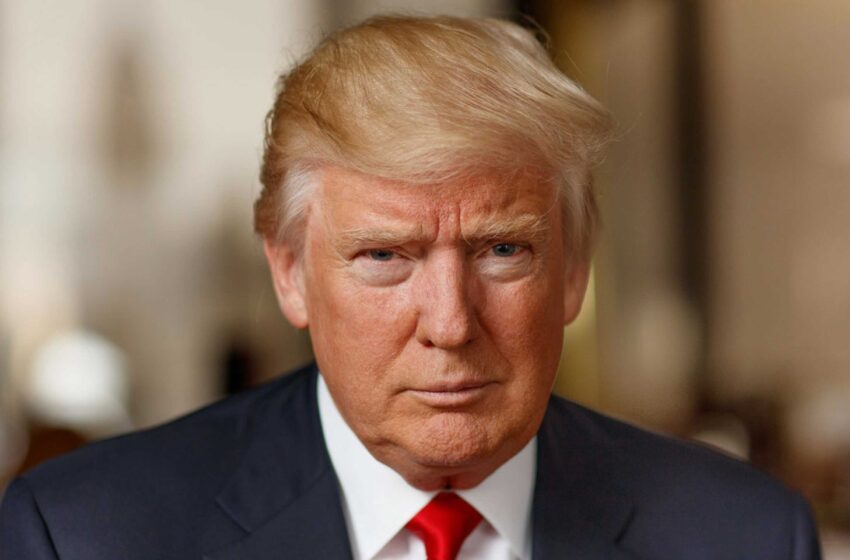Senate defies Trump: Bipartisan revolt erupts over controversial Canada tariffs amid global trade tensions

Donald Trump. Picture: David Hume Kennerly/Getty Images
In a striking rebuke of President Donald Trump’s trade policies, the U.S. Senate voted 50–46 on Wednesday to overturn tariffs imposed on Canada — one of America’s closest allies and largest trading partners. The move marks a rare moment of bipartisan unity as four Republican senators joined Democrats to oppose the administration’s escalating trade measures.
The resolution, spearheaded by Senator Tim Kaine of Virginia, challenges Trump’s use of emergency powers to justify tariffs under the claim that fentanyl and other drugs were entering the U.S. from Canada. “It is absurd to call this a national emergency,” Kaine remarked. “It’s a political pretext being used to penalize our ally for something that isn’t substantiated by evidence.”
Republican Cracks Appear in Trump’s Trade Armor
Republican senators Lisa Murkowski, Susan Collins, Rand Paul, and Mitch McConnell broke ranks with the White House, echoing concerns that the tariffs are hurting American consumers and farmers more than they’re helping. “Bourbon, soybeans, and countless American exports have been caught in the crossfire,” McConnell stated. “Our family farms can’t afford to be collateral damage in a trade war with Canada.”
Wednesday’s vote followed a similar resolution on Brazilian tariffs passed earlier in the week. Although largely symbolic — since House Republicans have blocked such measures from reaching the floor — the Senate’s action signals growing discomfort within the GOP about Trump’s aggressive trade agenda.
Trade Tensions Boil Over Amid Asia Trip
The vote took place as President Trump continued his trade-focused tour across Asia, where he has been negotiating deals with South Korea and China. Ironically, the Senate’s defiance came just days after Trump announced plans to increase tariffs on Canadian goods by an additional 10%, reportedly in response to a Canadian television ad that quoted Ronald Reagan criticizing protectionism.
The ad, funded by the province of Ontario, struck a nerve in Washington. Trump reportedly fumed that the broadcast was an “insult,” escalating tensions with Prime Minister Mark Carney’s administration, which has been pushing for a reduction in U.S. import taxes.
Economic Stakes: $900 Billion Relationship on the Line
The U.S.-Canada trade partnership is one of the world’s largest, totaling over $909 billion in 2024, according to the Office of the U.S. Trade Representative. Each day, roughly $2.7 billion worth of goods and services flow across the border. From auto parts to agricultural products, the economies of both nations are deeply intertwined — making Trump’s tariffs a potential destabilizing force.
Canada, in response, has been exploring new markets across Asia, signaling a slow but deliberate pivot away from heavy U.S. dependence. Yet, many economists argue that both sides have more to lose than gain from a prolonged tariff battle.
Democrats Frame the Vote as a Defense of Common Sense
For Democrats, Wednesday’s resolution wasn’t merely about trade — it was about reasserting congressional oversight. “No president should be able to weaponize emergency powers to punish allies or manipulate markets,” Kaine said on the Senate floor. He added that the Senate’s stand sends “a message that America’s credibility as a fair trading partner must not be compromised for personal grudges.”
Trump’s Trade Gamble Faces Growing Resistance
Trump’s decision to tie tariffs to national security and drug enforcement has faced criticism even within his inner circle. Less than 1% of fentanyl seized this year by U.S. Customs and Border Protection came from the northern border — a statistic opponents say undermines the administration’s justification for tariffs.
As Trump continues negotiations abroad, his administration faces mounting pressure at home. Farmers, manufacturers, and consumers are feeling the squeeze of higher prices and disrupted supply chains. Whether this Senate revolt signals a broader pushback against Trump’s trade agenda remains to be seen — but it has clearly cracked the veneer of GOP unity.
FAQs
1. Why did the Senate vote against Trump’s tariffs on Canada?
The Senate’s vote was a response to Trump’s use of emergency powers to impose tariffs that lawmakers saw as economically harmful and politically motivated.
2. Which Republicans sided with Democrats?
Lisa Murkowski (Alaska), Susan Collins (Maine), Rand Paul (Kentucky), and Mitch McConnell (Kentucky) broke ranks to support the resolution.
3. Will the resolution end the tariffs immediately?
No. The resolution is symbolic and unlikely to move forward in the House, where Republican leadership can block such measures.
4. How are the tariffs affecting Americans?
Farmers, exporters, and consumers are bearing higher costs as retaliatory tariffs impact U.S. exports, especially in the agriculture and beverage industries.
5. What’s next for U.S.-Canada trade relations?
Both nations remain in negotiations, but rising tensions could lead to long-term economic consequences if no compromise is reached.

